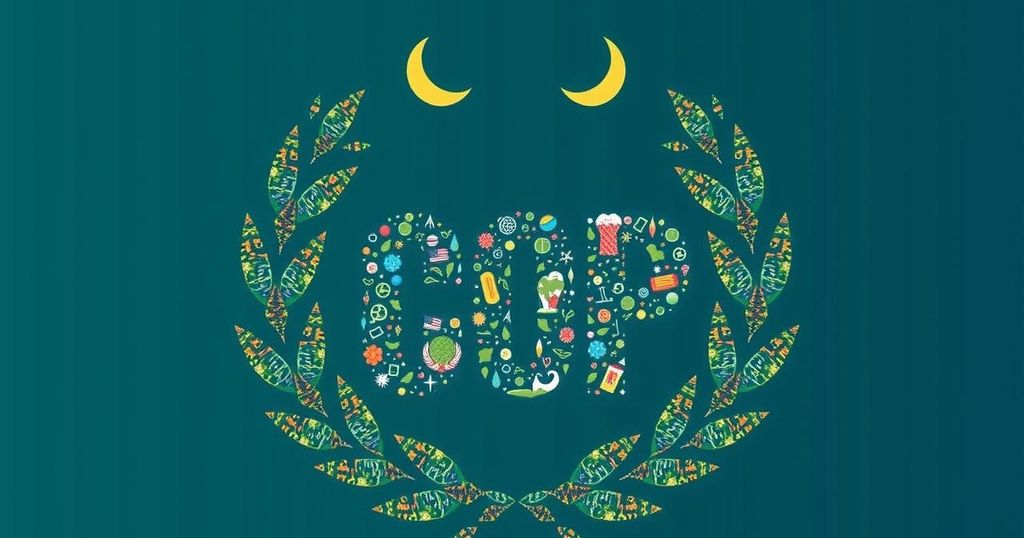Stalemate at Cop29 as Nations Clash Over Climate Fund Contributions

Negotiations at Cop29 in Baku are marred by disputes over a $1 trillion climate fund, with rich countries proposing only $300 billion annually. Developing nations demand more substantial grants instead of loans, raising the stakes as talk of a walkout threatens the negotiations. Allegations of obstruction by fossil fuel interests complicate discussions, with hope remaining for an equitable resolution.
The ongoing negotiations at the Cop29 UN climate conference in Baku, Azerbaijan, concerning a global climate fund have extended beyond the deadline, revealing significant discord between developed and developing nations. Wealthy countries proposed contributing approximately $300 billion towards a needed annual sum of over $1.3 trillion, which poor nations deemed insufficient. Key advocates for poorer countries, such as Ali Mohamed of Kenya, emphasized the necessity of substantial grants rather than loans that could exacerbate their debt. On Saturday, notable tensions arose when representatives from some of the world’s most disadvantaged nations withdrew from discussions due to unmet demands for climate financing.
“The moral compass of the world – the most vulnerable countries – have walked out after [the rich] failed to honour the promises they have made on climate finance,” voiced Mohamed Adow from Power Shift Africa. The conversations were marred by allegations of obstruction led by fossil fuel interests, notably from Saudi Arabia, which attempted to modify critical negotiation texts without adequate consultation.
Accusations also landed on Azerbaijan as the host nation, which critics claimed prioritized alliances with fossil fuel-producing countries, jeopardizing progress. Germany’s Foreign Minister, Annalena Baerbock, expressed outrage, stating, “We will not allow the most vulnerable, especially the small island states, to be ripped off by the few rich fossil-fuel emitters who have the backing, unfortunately, at this moment of the president [of the Cop].”
The dynamics of the ongoing talks continued to evolve as many hoped for a resolution to ensure climate justice and equity, with some observers warning that delays could undermine previous agreements aimed at transitioning away from fossil fuel reliance.
“True progress will be measured not by promises on paper, but by tangible support for the most vulnerable, ensuring that justice and equity remain at the heart of climate solutions,” cautioned Harjeet Singh from the Fossil Fuel Non-Proliferation Treaty Initiative.
The Cop29 talks in Baku represent a pivotal moment in the global climate initiative, aiming to establish a robust financing structure to combat climate change impacts, particularly in developing nations. Currently, there exists a stark disparity in the financial commitments from wealthier nations versus the ambitious financial needs outlined by less affluent countries. This session builds on the momentum from previous COP conferences, where commitments were made, but have often remained unfulfilled, leading to heightened tensions and calls for accountability during the ongoing negotiations.
The deliberations at Cop29 reflect deep-seated challenges in establishing equitable climate financing, highlighting the contention between rich and poor nations regarding financial contributions essential for climate action. The ongoing disputes underscore the urgent need for developed nations to adhere to their financial commitments while addressing the vulnerabilities of poorer states that bear the brunt of climate change. The outcome of these negotiations will significantly influence the future trajectory of international climate policy.
Original Source: www.theguardian.com








